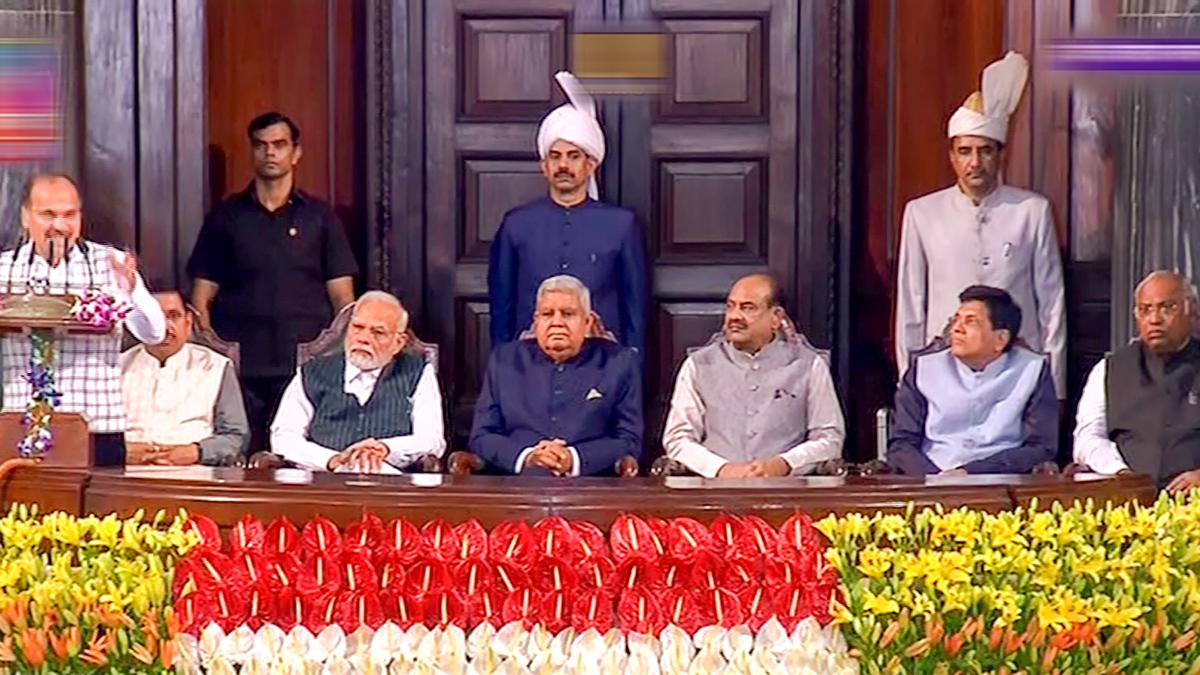
Adhir Ranjan Chowdhury flags 'stark disparities', bats for job creation to emerge as developed nation
The Hindu
He said 10% of India’s population controlled 73% of the total wealth, while 73% of the wealth created in 2017 gravitated towards the wealthiest 1%.
Congress leader Adhir Ranjan Chowdhury on September 19 flagged the "stark disparity" within the country in the form of wealth creation and said bridging it will be the crucial challenge in achieving a 'developed nation' status.
Addressing a function in the Central Hall of the old Parliament building, Mr. Chowdhury said India ranked 131st among 189 countries on the Human Development Index.
Also read | Parliament special session live updates
He said 10% of India's population controlled 73% of the total wealth, while 73% of the wealth created in 2017 gravitated towards the wealthiest 1%.
Mr. Chowdhury said 670 million people in the country saw their wealth increase by 1% in 2017.
"This stark disparity presents a crucial challenge in ensuring that millions living below the poverty line have access to fundamental necessities such as food, shelter and healthcare – a prerequisite for moving towards a developed nation status," Mr. Chowdhury said.
Vice President Jagdeep Dhankhar, Prime Minister Narendra Modi, Lok Sabha Speaker Om Birla, Union ministers Piyush Goyal and Pralhad Joshi and Leader of the Opposition in the Rajya Sabha Mallikarjun Kharge were present on the dias at the function.

“Writing, in general, is a very solitary process,” says Yauvanika Chopra, Associate Director at The New India Foundation (NIF), which, earlier this year, announced the 12th edition of its NIF Book Fellowships for research and scholarship about Indian history after Independence. While authors, in general, are built for it, it can still get very lonely, says Chopra, pointing out that the fellowship’s community support is as valuable as the monetary benefits it offers. “There is a solid community of NIF fellows, trustees, language experts, jury members, all of whom are incredibly competent,” she says. “They really help make authors feel supported from manuscript to publication, so you never feel like you’re struggling through isolation.”

Several principals of government and private schools in Delhi on Tuesday said the Directorate of Education (DoE) circular from a day earlier, directing schools to conduct classes in ‘hybrid’ mode, had caused confusion regarding day-to-day operations as they did not know how many students would return to school from Wednesday and how would teachers instruct in two modes — online and in person — at once. The DoE circular on Monday had also stated that the option to “exercise online mode of education, wherever available, shall vest with the students and their guardians”. Several schoolteachers also expressed confusion regarding the DoE order. A government schoolteacher said he was unsure of how to cope with the resumption of physical classes, given that the order directing government offices to ensure that 50% of the employees work from home is still in place. On Monday, the Commission for Air Quality Management in the National Capital Region and Adjoining Areas (CAQM) had, on the orders of the Supreme Court, directed schools in Delhi-NCR to shift classes to the hybrid mode, following which the DoE had issued the circular. The court had urged the Centre’s pollution watchdog to consider restarting physical classes due to many students missing out on the mid-day meals and lacking the necessary means to attend classes online. The CAQM had, on November 20, asked schools in Delhi-NCR to shift to the online mode of teaching.









